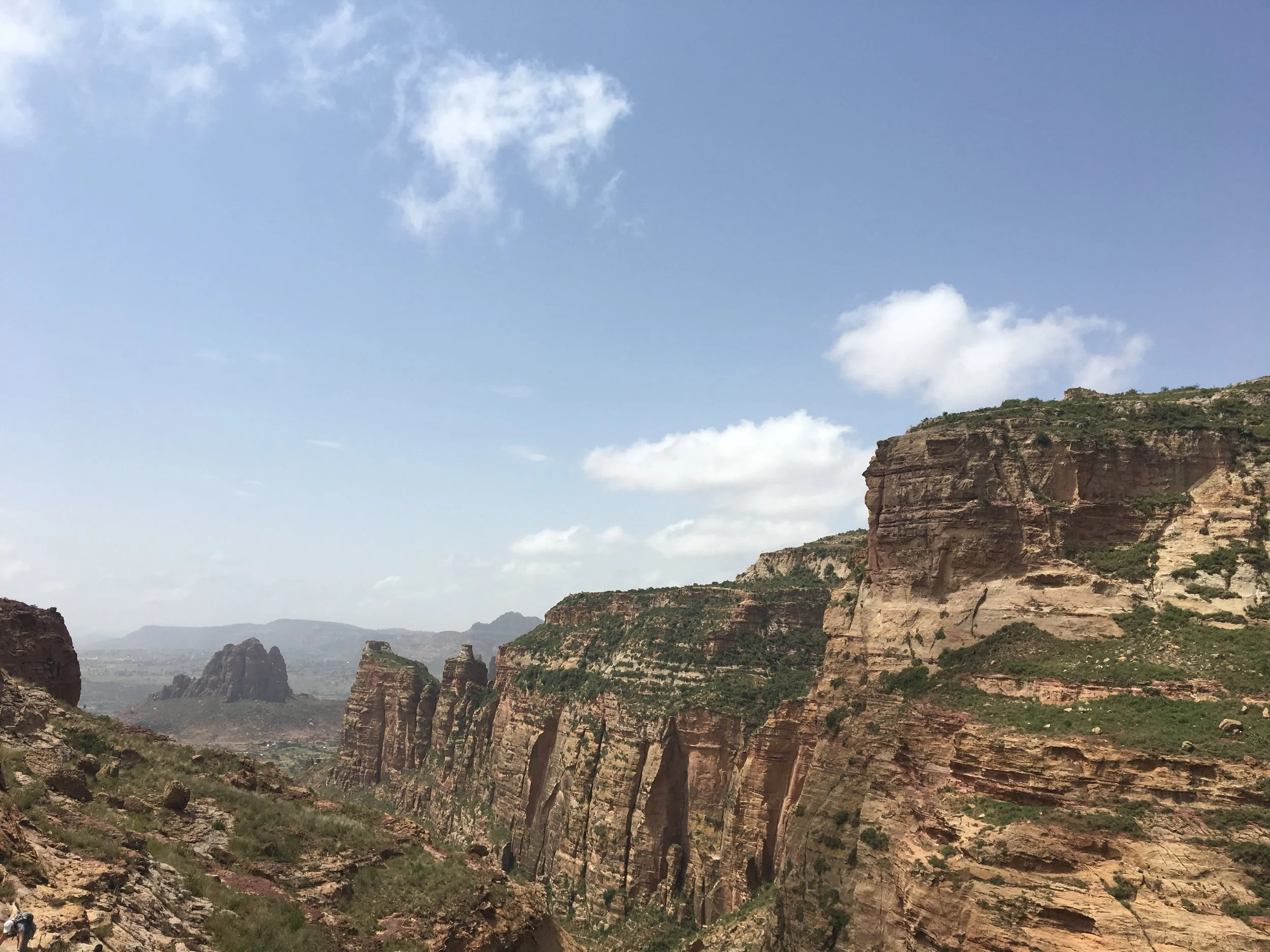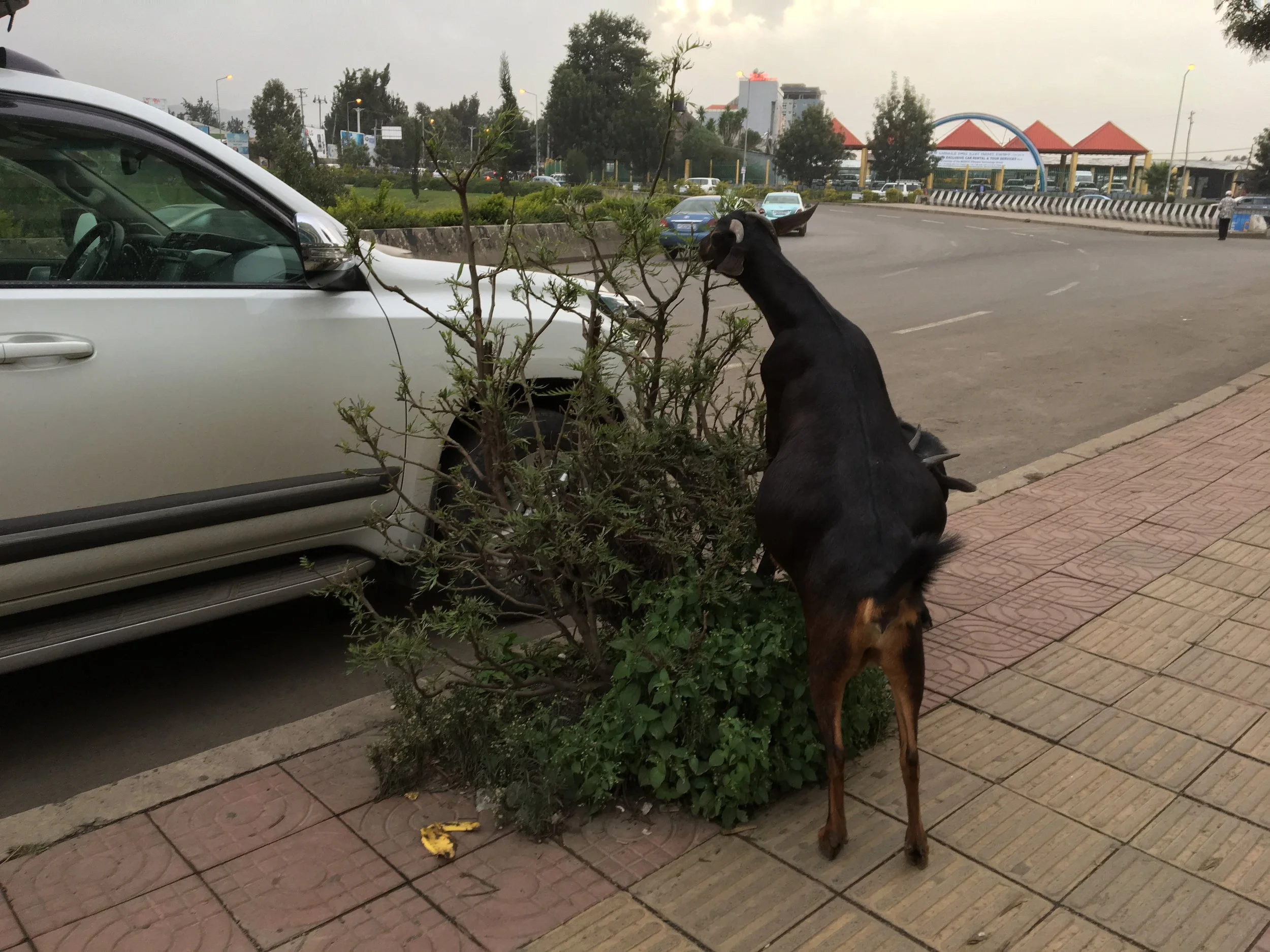The Second Month—Tiqimt/October
“Sunny growing and ripening season. Honey removed from hives. The first barley threshed and winnowed for roasting and beer-making. Children play outdoor games, girls dance and greet storks arriving ‘from Jerusalem’.” -The Wife’s Tale
“You are strange in this country.”
My Ethiopian counterpart said this to me, though I know he meant to say “a stranger” there is something poignantly true about the way he said it. Everything about me that I’ve found to be quite normal is unusual here, Ethiopians comment on my freckles, my hair, the fact that I get sunburned and my skin turns pink, the already visible tan lines from my sandals and my watch. That I don’t wear a cross around my neck. That I’m thirty years old and am not married and don’t have children. I’m strange to this new place, and this new place is at times strange to me.
I’m learning to embrace how unpredictable my life can be here day to day. One of my students gave me a ride home from school on his donkey cart. When leaving the gabeya (market) a few women said hello to me and ushered me into their home for buna. I’m still amazed by Ethiopian’s generosity. I walked in, the father of the house was busy at an old sewing machine (there are a lot of tailors here). The young daughter, Hiwot, chatted with me, inviting me to come again.
The things that bring me the most joy are the simple things; playing with kids in my compound and on our road, walking to and from school with the elementary school students, random acts of kindness—like the woman who gave me her shopping bag when I was buying avocados and had nothing to put them in, beautiful solitary walks through the churchyard and across the river where I wash my dusty feet, ending in the teff fields. Feeling grateful to be here.
I was having buna with Mimi when she handed me a saucer of something that was amber colored. I realized it was mar (honey)—it was raw and I scooped it off the saucer with my fingers, chewing on the waxy parts of the comb and swallowing the honey which had a deep, smokey taste. This is the land of milk and honey, this is heaven.
Everyday with Geta
Geta sewed together his football (a bunch of plastic bags stuffed tightly together with some cloth wrapped around them) while I sat beside him and read. Later we made dinner together—avocado and dabo—and ate together in silence while a thunderstorm broke overhead. I’ve started helping Geta with his homework; English, Math, Amharic, and Science. Geta and his little brother, Melaku, have recently discovered my phone’s ability to play music and are obsessed with Taylor Swift’s Shake It Off—it is really adorable to see them sing along. Geta and I read our own books together, put up my ice cream cone decorations, ate oranges. Geta and I made a kite out of notebook paper and colored it with markers. Then he broke my heart a little because he wanted to play with it with his “other friends”, but then he invited me to watch him play with the kite—which didn’t really fly—but the beaming smile on his face as he ran down the road was worth it. The next day Geta asked to make another kite and insisted on writing my name all over it which was sweet. Just when he’d won me over he didn’t want me to play football because he was with his bros.
I’m realizing Geta may think I know everything about everything—which is a way many children see adults—a lot of pressure on me. I feel he looks to me for answers, but of course I hardly know anything.
The Road to Butajira
Riding in a minibus—the way they pack everyone in—people sitting on stools, stereos, and gerry cans. The van is likely meant to seat 9-12 but they find a way to fit in more than that. Luggage is strapped to the top. (I’ve seen injera, chickens, sheep, mänamän [whatever]ride on the top). The minibus careens down the road swaying between Bajaj, dogs, an occasional bicyclist. Narrowly missing donkeys and weaving through herds of cattle. Vendors sell pumpkins on the roadside. The road is a narrow highway which leads all the way to Kenya (a journey which would take several days). There are no seatbelts, the danger is both exhilarating and humbling as road accidents are common. A sticker of Jesus or the Virgin Mariam on the windshield lead our way.
Ihud/Sunday
On Sunday’s I join my compound family for a late breakfast where we eat injera or bread with aib—an Ethiopian cheese similar to feta—and drink buna with salt and milk.
I wash my hair and my clothes. Sunday’s are my favorite day.


